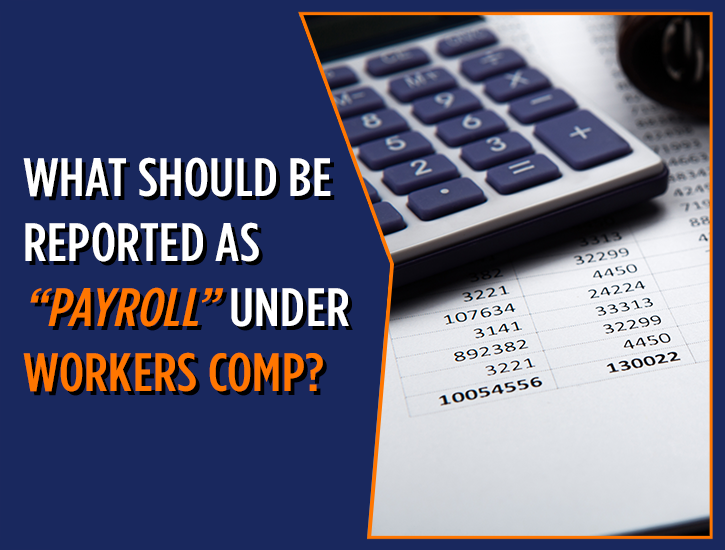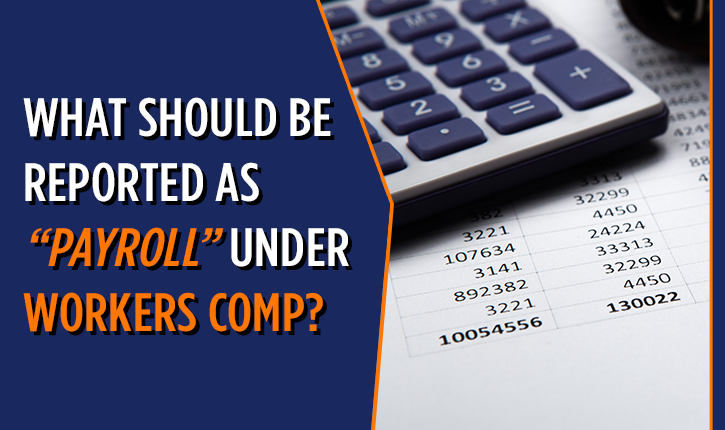
What Should be Reported as “Payroll” Under Workers Comp?
For those of you that handle the Workers Comp coverage for your business, this may seem like a question with an obvious answer, but I get asked this frequently enough that it seems worth covering here.
This winds up being extremely valuable to know, whether you’re dealing with a premium audit, or just budgeting for the coming year’s expenses.
Workers Comp premiums are developed by applying the rate assigned to a given category of employee to the total (gross) compensation paid during the period in question. Nothing surprising there.
But when determining that “total compensation”, what is included as payroll? According to the authority on this topic in California, the Workers Compensation Insurance Rating Bureau (WCIRB), all of the following are included:
- Gross wages
- Salaries
- Commissions
- All bonuses
- Most profit sharing
- Vacation, holiday and sick pay
- Overtime (“straight time” portion only, so “time and a half” or “double-time” pay should be recalculated at regular time wage for workers comp reporting)
- The market value of gifts
- Automobile allowances (less reimbursement for documented expenses)
Note: Owners/officers of the company that are included for Workers Comp coverage are still subject to the minimum/maximum ratable annual wage thresholds set by the state.
Conversely, the following items are specifically excluded from payroll when determining the basis of premium:
- Meals or lodging (unless the rules for that particular classification specifically includes them OR they are provided in lieu of wages)
- Tips
- Overtime excess pay (the increase above the regular hourly wage)
- Severance pay (except for accrued vacation, sick pay, commissions and bonuses)
- Employer contributions to qualified insurance, stock or retirement plans
- Stock options
- The value of an automobile furnished to an employee
Also, the following are not included as payroll for premium computation:
- Employee discounts for merchandise
- Residual payments for commercials
- A uniform allowance
As you might have noticed, “payroll” for workers’ compensation insurance purposes is not necessarily the same as the Internal Revenue Service definition of payroll. Hopefully the above clarification will help you keep your policies accurate and avoid any surprise disagreements with your carriers down the line.
About Eclipse
Founded in 1972, the Eclipse Insurance team has been dedicated to understanding the needs of and providing services to underserved industries such as construction, electronic security, and environmental services. Eclipse helps you understand your coverage, plan for growth and avoid or mitigate risk. Call us today to learn more! (800) 530-4448

About the Author
Larry St. John is a 20+ year veteran of insurance and risk management for the construction and electronic security industries.
He can be reached at LStJohn@eclipseinsurance.com




